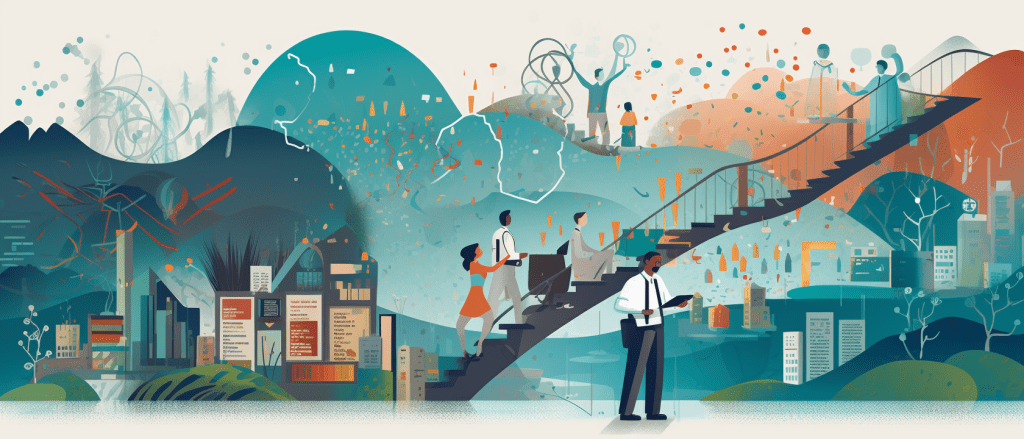The rapid advent of technology, especially Artificial Intelligence (AI) and robotics, has stoked fears about job security across numerous professions. Our field, pharmacy, is witnessing the integration of these technologies at an unprecedented rate. Does the rise of AI and automation signify the end of our jobs as we know them? Let’s delve into this intriguing and essential topic.
Understanding the Technological Revolution

Over the past few years, AI and robotics have made significant inroads into our pharmacy sector, from automated pill dispensers to AI-driven drug discovery. At face value, it might appear that these technologies are poised to replace us. However, a deeper understanding of our role and the limitations of technology paints a different picture.
The Indispensable Human Element

Despite the sophistication of AI and robotics, there is an irreplaceable aspect to our role as pharmacists: the human touch. We are not just dispensers of medicine. We are healthcare professionals who provide critical patient care services, counsel patients, manage medication therapy, and contribute to public health initiatives.
The nuances of patient care, such as empathy, understanding unique patient needs, and making complex clinical judgments, are facets of care that technology cannot fully replicate. AI can provide data, but it lacks the human ability to interpret this information in the context of a patient’s overall health and wellbeing.
Technology As An Aid, Not A Replacement

It’s important to reiterate that while technology is making tremendous strides, it serves as an aid to us, not a replacement. The goal of integrating technology into the pharmacy industry is to streamline operations, reduce errors, and increase efficiency – not to eliminate jobs. Automation, for example, can expedite tasks such as dispensing, labeling, and packaging of medications, enabling us to focus on more complex responsibilities. Additionally, Machine Learning and AI can process and analyze vast quantities of data at high speeds, assisting in areas such as predictive analytics, personalized medicine, and drug discovery.
The Expanding Scope of Pharmacy

As technology continues to advance, the scope of our profession is expanding in tandem. This is leading to the emergence of new roles and specialties within the field, offering exciting career opportunities for us. Here are a few examples:
- Pharmacy Informatics: This intersection of pharmacy and informatics focuses on the use and integration of technology, data, and information to improve medication use and health outcomes. We ensure that technology is used safely and effectively across healthcare settings.
- Pharmacogenomics: As the era of personalized medicine blossoms, our role in pharmacogenomics is growing. By understanding how a patient’s genetic makeup affects their response to drugs, we can assist in tailoring more effective and safer medication plans.
- Public Health and Policy: We are also taking on greater roles in public health initiatives and health policy development. With our knowledge of medication and patient care, we can contribute to disease prevention programs, health promotion, and shaping health policies.
Education and Training: Adapting to the Future

The increasing integration of technology in pharmacy also implies a shift in our education and training. Curriculums need to incorporate subjects such as health informatics, data analytics, and pharmacogenomics, equipping us, the current and aspiring pharmacists, with the knowledge and skills to navigate a tech-driven healthcare landscape.
We also need to commit to lifelong learning, continually updating our skills to keep pace with advancements in technology and medicine.
A Future of Opportunity, Not Obsolescence

The narrative around technology and job loss often paints a bleak picture. However, when it comes to pharmacy, technology appears more as an agent of opportunity rather than obsolescence. The future of pharmacy promises an expanded scope of practice, new career paths, and a shift towards a more patient-centric approach enabled by technology.
Far from becoming obsolete, the role of pharmacists is set to become even more integral and multidimensional in the healthcare ecosystem of tomorrow. Therefore, let’s change the question from “Will pharmacist jobs become obsolete?” to “How will pharmacist jobs evolve in the face of advancing technology?” This perspective not only represents a more accurate forecast of the future but also acknowledges the vital, irreplaceable role that we, as pharmacists, play in healthcare. We are not simply providers of medication, but crucial connectors in the intricate healthcare network, bridging the gap between patients and their health.
Thus, as we advance further into the 21st century, it is evident that the role of pharmacists will not become obsolete. Instead, it will continue to evolve and adapt, leveraging the power of technology to enhance our practice, and offer the best possible care to our patients. As pharmacists, we have an exciting future ahead of us – a future filled with opportunities, not obsolescence.